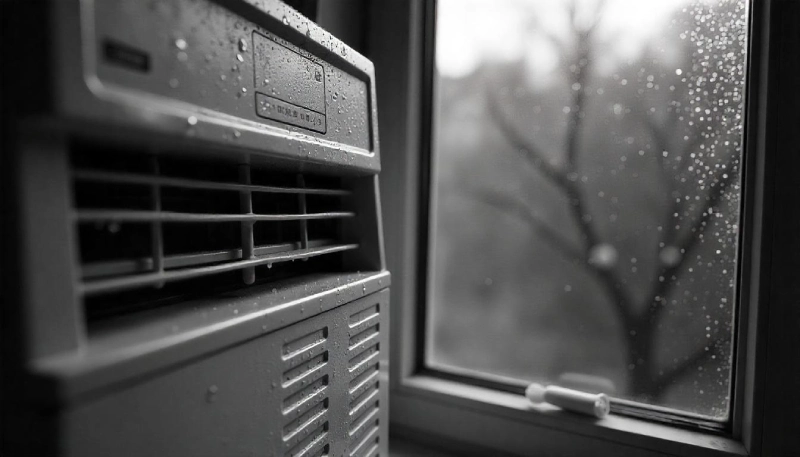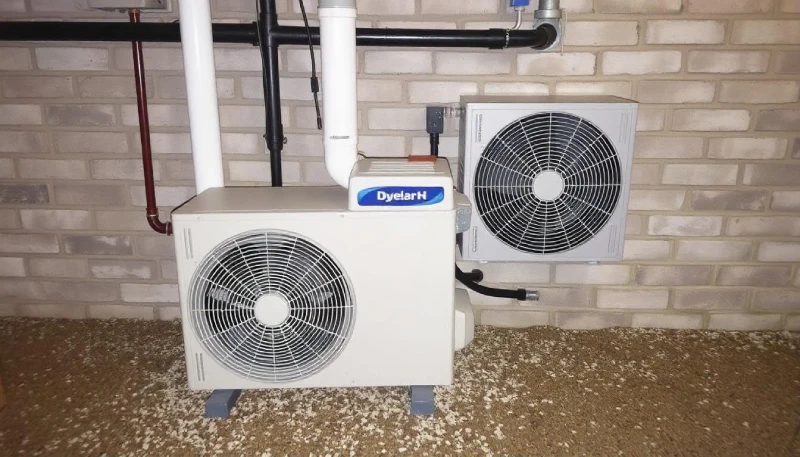Living in a home with a basement can be great. But without proper cooling, your below-grade space might feel more like a sauna than a comfy room. That’s where basement AC units come in! And guess what? There are lots of cool options to choose from in 2025.
Want to turn your basement into a comfortable space all year round? You’re in the right place. We’ll walk you through everything you need to know about basement AC units, from picking the right one to keeping it running smoothly.
Understanding Basement AC Units: Types and Benefits
Let’s start with the basics. There are several types of air conditioning systems perfect for basements. Mini-split AC units are super popular because they’re efficient and don’t need ductwork. Through-wall AC units offer a permanent solution that saves floor space. Window units can work if you have a window well, while portable AC units give you flexibility to move the cooling where you need it.
The benefits of having a dedicated basement cooling system are huge. For one thing, your basement stays dry and comfortable all summer long. Plus, since cold air naturally sinks, cooling your basement can help keep your whole house more comfortable. A good basement AC unit also helps control humidity, which means no more musty smell or mold problems.
When choosing your basement AC unit, think about things like room size, climate conditions, and budget constraints. Some basements might do fine with a simple portable unit from Home Depot or Lowe’s. Others might need a more powerful system from trusted brands like Carrier, Trane, or Lennox.
Cost Analysis: What to Expect When Installing a Basement AC
Nobody likes surprise bills. Installation costs for basement AC units can range quite a bit. A window unit might cost a few hundred dollars, while a mini-split system could run several thousand. But don’t worry – there are options for every budget.
Operating costs depend on your unit’s SEER rating and how often you use it. Higher SEER ratings mean better energy efficiency, which leads to lower monthly utility bills. ENERGY STAR certified units might cost more upfront but save you money in the long run.
Speaking of savings, there are lots of ways to cut costs. Energy rebates from your local utility company can help with the initial purchase. Some manufacturers offer financing options to spread out the cost. And proper maintenance can prevent expensive repairs down the road.
Many states and local governments offer incentives for installing energy-efficient cooling systems. The EPA even has programs to reward homeowners who choose environmentally friendly options. It’s worth checking what’s available in your area.
Professional vs. DIY Installation: Making the Right Choice

Let’s talk about getting your AC unit installed. Should you hire a pro or do it yourself? Well, it depends on what type of system you’re getting and how handy you are with tools.
Professional installation is definitely the way to go for complex systems like mini-splits or when you need new ductwork installed. The HVAC Contractors Association recommends leaving these jobs to the experts. Plus, pros know all about permit requirements and local regulations. They’ll make sure everything’s up to code and working safely.
But if you’re thinking about DIY installation, there are some things you can handle. Window units and portable ACs are usually pretty straightforward to set up. Just make sure you understand the electrical requirements and have a good spot picked out. And always check with your local Better Business Bureau to verify any contractors you’re thinking of hiring.
Safety should be your top priority. Whether you’re installing a window unit or a more complex system, you need to think about things like proper drainage system setup, secure mounting, and correct electrical connections. When in doubt, it’s better to call in a professional.
Sizing Your Basement AC Unit: A Comprehensive Guide
Getting the right size AC unit is super important. Too small, and it won’t cool your space properly. Too big, and you’ll waste energy and money. Let’s figure out how to get it just right.
First, you need to calculate the BTU rating you need. BTU stands for British Thermal Unit, and it tells you how much cooling power the unit has. A good rule of thumb is that you need about 20 BTU for each square foot of space. But wait – there’s more to think about!
Room size is just the start. You also need to consider things like:
- How many windows your basement has
- Whether your foundation wall is insulated
- What you use the space for
- How many people usually hang out there
Climate conditions make a big difference too. If you live somewhere super hot and humid, you might need more cooling power. The American Society of Heating, Refrigerating and Air-Conditioning Engineers (ASHRAE) has detailed guidelines about this.
Energy Efficiency and Performance Tips

Want to keep your cool without breaking the bank? Let’s talk about making your basement AC unit work smarter, not harder.
SEER ratings are like report cards for air conditioners. SEER stands for Seasonal Energy Efficiency Ratio, and higher numbers mean better efficiency. Most modern units have SEER ratings between 13 and 21. The higher the rating, the lower your monthly utility bills will be.
Smart thermostats are game-changers for basement cooling. They let you control temperature zoning from your phone and learn your schedule to save energy. Some even track your energy monitoring to show you how to save more money.
Here are some best practices for operation:
- Keep your air filters clean
- Set up good air circulation with strategically placed vents
- Use heat pump options in milder weather
- Take advantage of programmable features for temperature balance
Common Installation Challenges and Solutions
Installing a basement AC unit can be tricky. But don’t worry – we’ve got solutions for the most common problems.
Location is super important. You need to think about things like:
- Access to the mechanical room
- Distance to the ventilation shaft
- Space for the condenser unit
- Room for the equipment pad
Drainage is another big deal. Basements are below-grade spaces, so water needs somewhere to go. A condensate pump and drain pan are must-haves. Make sure your drain line location is planned carefully to prevent water damage.
Noise reduction is something many people forget about. But nobody wants a loud AC unit ruining their basement movie night! Good installation includes:
- Proper mounting to reduce vibration
- Strategic placement away from living areas
- Sound-dampening materials where needed
- Regular maintenance to prevent noisy operation
Maintenance and Upkeep: Keeping Your Unit Running Efficiently
Taking care of your AC unit is like taking care of a car – regular maintenance helps it last longer and work better.
Here’s a simple maintenance schedule to follow:
- Monthly: Check and clean air filters
- Seasonally: Clean coils and check refrigerant lines
- Yearly: Get professional service
- As needed: Troubleshooting common issues
DIY maintenance can save you money, but know your limits. Simple tasks like filter replacement and coil cleaning are usually safe to do yourself. But leave technical stuff like refrigerant handling to the pros.
Professional service guidelines suggest getting your unit checked each spring before the cooling season starts. This helps catch small problems before they become big ones.
Enhancing Your Basement’s Comfort: Beyond AC Installation
Cool air is just part of the comfort puzzle. Let’s look at other ways to make your basement feel amazing.
Humidity control is super important in basements. A good dehumidifier working alongside your AC can help prevent mold prevention and keep the air feeling fresh. Think about getting a unit with built-in humidity control features.
Good air circulation makes a huge difference. Use fans strategically and make sure your vents aren’t blocked. This helps with cooling distribution and improves indoor air quality.
Insulation tips for better comfort:
- Seal gaps around windows and doors
- Insulate your foundation walls
- Add weatherstripping where needed
- Consider upgrading your window well covers
Remember, the goal is to create a space-saving design that gives you improved comfort all year round. With the right setup, your basement can be just as cozy as any other room in your house.
Conclusion
Setting up a basement AC unit might seem overwhelming at first. But with the right information and planning, you can create a comfortable, energy-efficient space that you’ll love spending time in.
Ready to get started? Here’s what to do next:
- Measure your space and calculate your cooling needs
- Research different unit types and brands
- Get quotes from licensed HVAC contractors
- Check for available energy rebates
- Make a maintenance plan
Remember, a well-planned basement cooling system is an investment in your home’s comfort and value. Take your time, do your research, and don’t be afraid to ask for help when you need it.
Want to learn more? Contact your local HVAC professionals or visit ENERGY STAR’s website for additional resources about energy-efficient cooling solutions. And remember, for more home improvement guides and expert advice, visit HomeFormations – your trusted source for creating comfortable, efficient living spaces that last.
